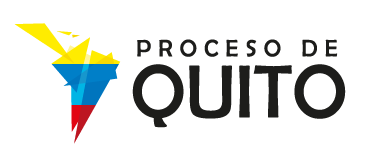Representatives of Support Spaces from the region meet in Quito to coordinate joint work
On November 29 and 30, representatives of civil society organizations, international organizations and chancelleries, secretariats and ministries from 14 countries in Latin America and the Caribbean gathered in the city of Quito for the Regional Meeting on Protection and Integration Centers and Support Spaces for Venezuelan refugees and migrants, carried out within the framework of the Quito Process as a continuation of this thematic area. The event was conceived based on the recommendations of the Brasilia Declaration as an initial step in the inception of a possible regional network of support spaces managers, and supported by UNHCR, IOM, UN Habitat and UNICEF, in addition to the organization Ret Américas, in its organization.
The meeting aimed to encourage the exchange of information and good practices among technical managers, with a special focus on capacity building, to promote the implementation of common standards and lines of work in attending refugees and migrants, and to strengthen coordination between protection and integration networks for this population in the region.
To this end, participants were introduced to the history of the Quito Process by the Technical Secretariat and to a conceptualization of the Support Spaces by R4V, in addition to the Guiding Principles of these spaces approved in the Lima Chapter, that are based on international standards contemplated in Human Rights and other global, regional and national tools for the protection and assistance of people in situations of human mobility. Another shared initiative was the regional mapping of centers and services developed by the platform, which can serve as a valuable tool for guiding this population.
Ecuador shared its good practices and data on the country's support spaces, which were be evidenced during three field visits, and the network of IntegrHa-bitat centers was presented by UN Habitat as an important regional initiative. The Brazilian response also gained prominence, through the presentation on the support spaces implemented within the framework of the Acolhida Operation, and the coordination between civil society, local authorities and international organizations implemented by the federal government.
The participants were brought closer together throughout the event, through group activities, when a survey was carried out on the main needs, challenges and strengths of each national context, in addition to a joint activity between groups composed by different countries, when participants were able to draw up an action plan to be presented to potential supporters. The role of civil society in the humanitarian response and in hosting Venezuelan refugees and migrants was evidenced in several speeches, reinforcing closer ties between these frontline actors and the Quito Process.
At the end of the event, the representatives of each country or region made a survey of local actions that can be coordinated as a follow-up to a next meeting. In total, around 70 people participated in the regional meeting and showed their interest in continuing this joint work.


